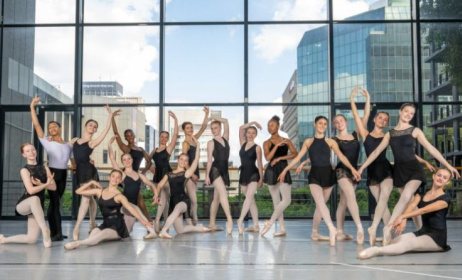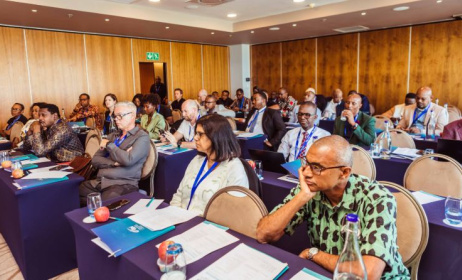SAMRO board confirms fraud, hands matter to police
The Southern African Music Rights Organisation (SAMRO) board of directors has alleged there were fraudulent activities by some of its members who made irregular royalty claims and thereby defrauded the collective management organisation (CMO).
 SAMRO board chairperson Nicholas Maweni.
SAMRO board chairperson Nicholas Maweni.
In response, the board commissioned a forensic investigation into the matter to understand the full extent of the problem. SAMRO says the report confirmed that some SAMRO members were fraudulently claiming royalties that did not belong to them.
SAMRO board chairperson Nicholas Maweni says the case has been handed over to the South African Police Service for investigation and added that the CMO would continue to work with the authorities on the ongoing investigation, which could result in criminal and civil charges against some of its members.
“The report, compiled by independent investigators, made certain recommendations in terms of the steps to be taken with regard to implicated persons,” Maweni said. “These recommendations were reviewed and supported by yet another independent third party. It is clear that certain members have violated the SAMRO Code of Conduct, which is very clear in providing that members of SAMRO shall not provide false or misleading information in relation to musical works to SAMRO.”
Speaking to Music In Africa, Maweni said Fundudzi Forensic Services submitted the comprehensive report sometime this year, which revealed unlawful conduct among some SAMRO publishers, authors and composers. The members had submitted claims for undocumented works to SAMRO, leading to suspicions of fraudulent activity. Undocumented works are those that are reported to SAMRO but cannot be identified.
Based on these findings, SAMRO registered a criminal case for potential fraud against various individuals. Many claims, including one for R3.4m ($180 000), lacked supporting documentation for proof of ownership, indicating fraudulent intentions.
“In one instance, when we started sniffing around this, it was related to a matter of payment from an undocumented work, or non-identified work by that publisher. It was for the value of R3 416 580.62 in just one financial year, 2020 to 2021,” he said. “In another instance, another composer was also trying to get something in the region of over R3m ... and this is a person who normally claims about R1 000 or R300. So we picked up that there was something very, very odd with this. The list is endless and it’s not small amounts, it’s huge amounts.”
How SAMRO was defrauded
Maweni added: “The modus operandi, as we’ve picked up from the people here, is that they go into the undocumented portal and they identify the work that they know is about to expire ... Then they also look in terms of high value and submit claims and say that this is their work. But the good thing about this is that in some cases the money was paid, but in most cases it was not because of our very good, stringent processes that we have at SAMRO.”
He said the fraudulent activities were picked up from the single forensic audit and SAMRO wanted to conduct further investigations to find out how much damage was done in previous years. He pointed out that some claims were made through the help of a SAMRO employee who had since left the organisation.
“We picked up that in certain cases there was a particular employee who worked at SAMRO and was dealing with the undocumented work, and who was even enabling and helping various publishers and composers to claim works that did not belong to them. That person was clearly getting something in return. We’ve got proof of that in terms of various correspondence and this is really what has allowed us to open and register criminal and civil case of potential fraud.”
In a statement, Maweni said SAMRO had welcomed recommendations by the forensic investigators to appoint “more independent non-executive directors to improve good governance at SAMRO.”
SAMRO has also admitted to weaknesses in its internal controls and that management had already implemented remedial measures to mitigate against fraud in the future.
The forensic report was presented to SAMRO members on 7 December following deliberations by the board. SAMRO says its members were given an opportunity to engage with the CMO about its contents.
“I would like to make it very clear that SAMRO has zero tolerance for fraud – one cent stolen is one cent too many. Anyone caught trying to commit such fraud-related offences at SAMRO will be prosecuted to the full extent of the law. We remain adamant about stamping out any forms of criminality within the organisation,” Maweni said, adding that SAMRO had taken steps to recover all irregular payments for undocumented works.
SAMRO’s primary role is to administer performing rights on behalf of its members, including music composers, authors and publishers. It does so by licensing music users such as TV and radio broadcasters through the collection of licence fees that are then distributed as royalties.
This article was updated with more information after initial publication.


































Comments
Log in or register to post comments